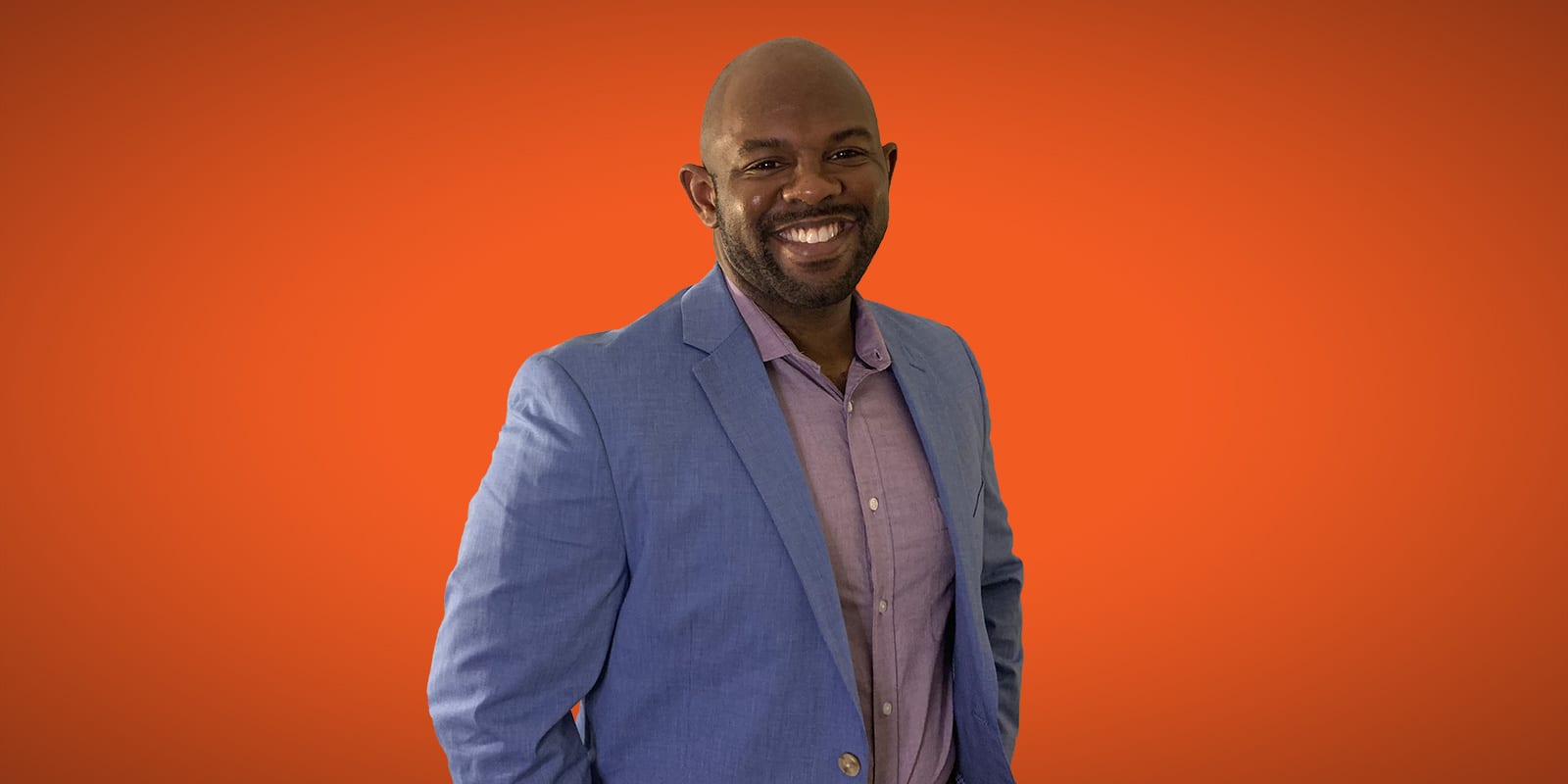On October 9, 2020, we kicked off a Fall Institute unlike anything we could have imagined a year earlier.
Each fall, as a new cohort of scholars joins the program, the institute is our chance to start getting to know each other face to face. This year, that was impossible. Due to the pandemic, we found ourselves engaging by video instead.
Though we were sorry to miss the traditional in-person event, our first virtual Fall Institute made us adapt and deepened our understanding of how to build relationships when we can’t gather in the same physical space.
After the event, one of our new scholars—Hayden Dawes, LCSW, LCAS, at the University of North Carolina at Chapel Hill School of Social Work—shared his reflections on the experience.
In the text below, a short audio clip from the reflections Dawes shared is embedded in each link. To hear his words in his own voice, just click. (To see transcripts of all clips, click here.)
Be real: Like us, Dawes felt sad that we couldn’t be together in person in Baltimore. And he said he appreciated the fact that space was made to acknowledge what people were feeling: “That way, we didn’t just act like ‘Oh, it’s not that big of a deal.’”
Walk the talk: As the old saying goes, actions speak louder than words. Seeing members of the HPRS team embody trust, camaraderie, and mutual support made it clear to Dawes that, as he put it, “the culture is something that is worked upon and maintained.” That made him feel safe enough to show up and be fully present.
Care for the whole person: Dawes remarked that he had never been part of an online meeting where people were invited to look away from the screen. As a mental health clinician, he thinks that’s important because “we can’t connect on a deeper level if our bodies aren’t feeling grounded and supported, and if our eyes aren’t rested enough.”
More broadly, Dawes commented on the central importance of creating space for connection. Dedicating time to getting to know each other in creative ways during Fall Institute made all the difference. Dawes was surprised by just how engaging the experience was: “I didn’t want to pry myself away from Zoom!”
In October, we cultivated connection in four specific ways that Dawes appreciated.
Exploring values: Reflecting on and sharing our most important values gave Dawes a strong and swift sense of belonging. “The first few values of my cohort members were compassion and empathy,” he recalled. “And in my work and in my personal life, those are some really important values to me. And the values as we continued along just got richer and deeper.”
Sharing stories: Listening to other scholars’ stories gave him insight into their overlapping experiences. “It really was lovely to connect with the other scholars and to meet them,” he said. “So many of us being first generation, often immigrants, often people of color, folks that came from a low-income background, so many of our experiences were quite similar.”
Connecting more widely: During the institute, Program Director Keshia Pollack Porter shared an Indigenous land acknowledgment written by previous scholars. Hearing it made Dawes feel connected to an even wider community, beyond the new cohort. There was, he reflected, “something magical about the fact that we are joining in community … also [with] cohorts one, two, and three.”
Having fun together: Last but not least, Dawes affirmed the importance of connecting through lightheartedness. “I did not expect to have that much fun!” he said. “I had not danced on Zoom with a lot of other people. … That was so connecting and it really kind of elevated the mood.”
We are thrilled by the commitment and energy all our new scholars brought to the virtual Fall Institute space. And we’re grateful to Hayden Dawes for sharing his reflections and insights!
You can read Hayden Dawes’ profile here, visit his website, or follow him on Twitter, Instagram, or LinkedIn.

